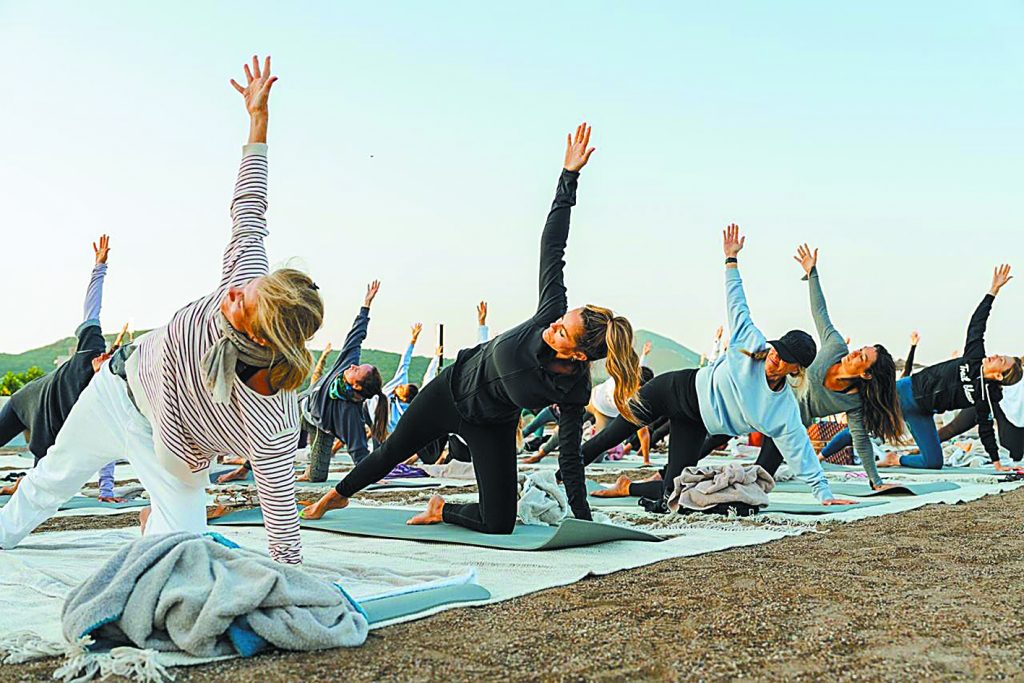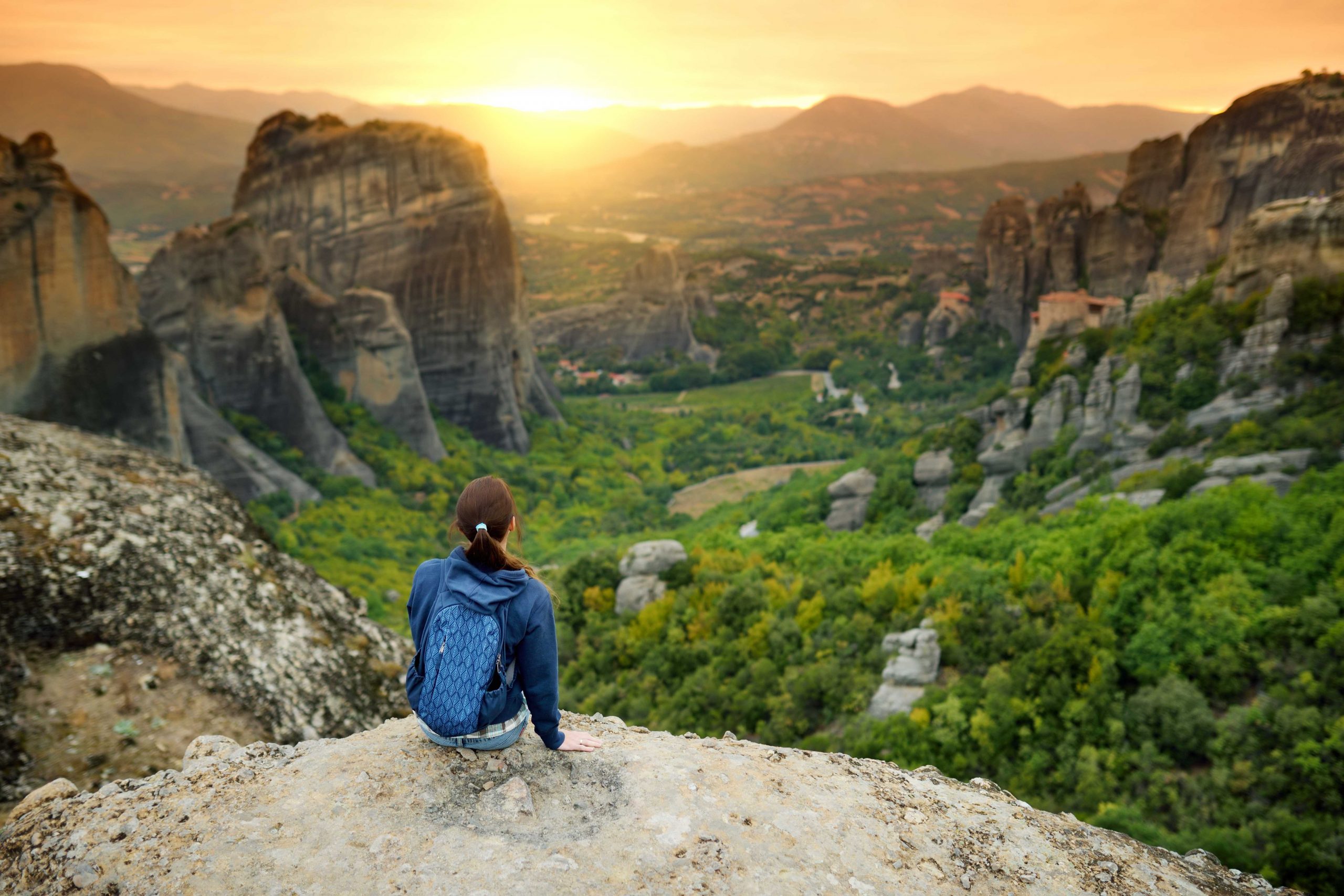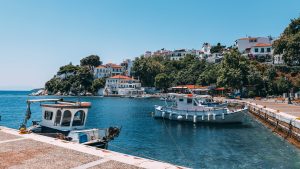Everyone knows and loves Greece for its pristine beaches, post-card perfect islands, fantastic food, and trademark hospitality, but as of late, efforts are being made to tap into one of the fastest-growing tourism segments in the world: wellness.
And rightfully so one could say. Despite its small size, Greece not only offers a surprisingly diverse range of landscapes sea to mountain and fine weather all year round, it also boasts one of the world’s (scientifically-backed) healthiest diets and still enjoys small-scale produce and fresh products.
But can a country that has won travelers over for its sea & sun and archaeological wonders evolve into a wellness destination?
Wellness Travel: New Way to Discover Greece
“It certainly can,” Greek National Tourism Organization (GNTO) President Angela Gerekou tells To Vima English Edition. “It can actually lead the way in wellness tourism because it combines unique landscapes, history, culture, hospitality, and the famous Greek diet.”
Gerekou is quick to point out that wellness tourism is all about balance. She uses the Ancient Greek term “Ef Zin” to describe what travelers today are looking for.
The concept which is the Greek philosophy of “a life well-lived” goes beyond wellness, she says, “it embodies all the aspects of wellbeing and health that people are now hoping to find through travel: physical, mental and spiritual growth”.
“And Greece can satisfy all three.”
Gerekou adds that the growing potential of the segment is evident in the number of international hotel groups investing in Greece and the increasing number of local hoteliers incorporating such experiences into their offerings.
Demand for Wellness Travel Growing Fast
Wellness tourism is one of the fastest growing segments in the world. COVID-19 forced people to prioritize health and wellness and make lifestyle changes which also included shifting towards travel experiences that offer connection, recreation, and health benefits.
Based on data released by the non-profit Global Wellness Institute (GWI), the global wellness tourism industry is expected to expand by approximately 21% by 2025. At the same time, travelers are turning to wellness-focused trips and willing to spend much more on treatments and retreats.
The wellness tourism market is set to reach a value of $1.4 trillion in 2027 and the number of wellness trips globally are expected to hit the 1.63 trillion mark by 2027 up from 819 million in 2022.
In view of this astounding prospect, Greece couldn’t be left out.
In order to get a share of this booming segment, Greece should accelerate the construction of infrastructure and new wellness and spa centers, upgrade existing wellness facilities, including some 752 natural thermal springs across the country, and ensure the availability of luxury hotel services, says Gerekou.
She adds to that smart solutions and targeted marketing actions are also a top priority. In this direction, the GNTO, the national tourism board, has been running in the last two years a campaign abroad promoting Greece’s luxury and wellness offering available all year round.
Re-introducing Greek Wellness Traditions
“The Greek philosophy of ‘Ef Zin’ is gaining ground fast making it crucial for luxury accommodation providers to include services such as spa treatments, sports, and curated dining experiences into their offerings,” she explains.
For Gerekou, Greeks are fortunate as there is a vast legacy to draw inspiration and resources from. “Going back to our roots is as important as creating infrastructure. In addition to the beauty of its landscapes and its hot springs, Greece continues to preserve many of its wellness traditions which incorporate herbs and extra virgin olive oil into traditional treatments and remedies, and which can be developed into unique experiences for visitors, she tells To Vima English Edition.
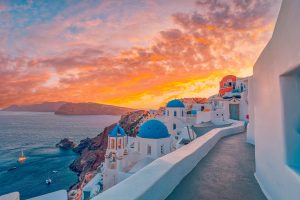
Many luxury hotels in Greece already offer such treatments while more boutique hotels and even smaller lodgings are incorporating wellness and health experiences into their services.
Greece has the natural resources to support such experiences. The islands and remote mountain destinations for example are ideal for relaxation, rejuvenation, wellbeing and mental ‘healing’ through sports, yoga, and specialized programs.
What’s more, says Gerekou, it’s a top priority for the government to further develop Greece’s popular brand name incorporating tourism products that respect the environment, incorporate the country’s natural offerings as well as its heritage traditions into experiences, support local communities while spreading tourist flows to all destinations all year round driving sustainable tourism growth.
Greece Prioritizes Responsible Travel and Inclusivity
According to the World Tourism Organization (UNWTO), local gastronomy, nature, wellness, and rural tourism experiences take center stage in travel this year. No doubt about it Greece has it all.
Gerekou adds that the GNTO has incorporated the latest travel trends into its updated its marketing strategy which is now aimed at a “more informed, responsible traveler”.
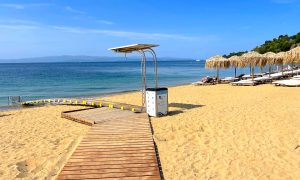
“For the first time, our campaigns present a different side of Greece, with initiatives focusing on sustainable tourism development that fosters responsible travel particularly in the midst of climate change and of course, accessibility and inclusivity.”
No doubt about it, TikTok and Instagram have contributed greatly to the segment’s popularity with wellness travel posts attracting millions of viewers worldwide. “The aim now is to add wellness to the country’s already trusted tourism reputation,” says Gerekou.
Earlier this year, the Greek Tourism Ministry and the World Health Organization (WHO) agreed to work together to develop wellness and health tourism in Greece. At the same time, the ministry is revising the legal framework and has secured funds to support related projects.
